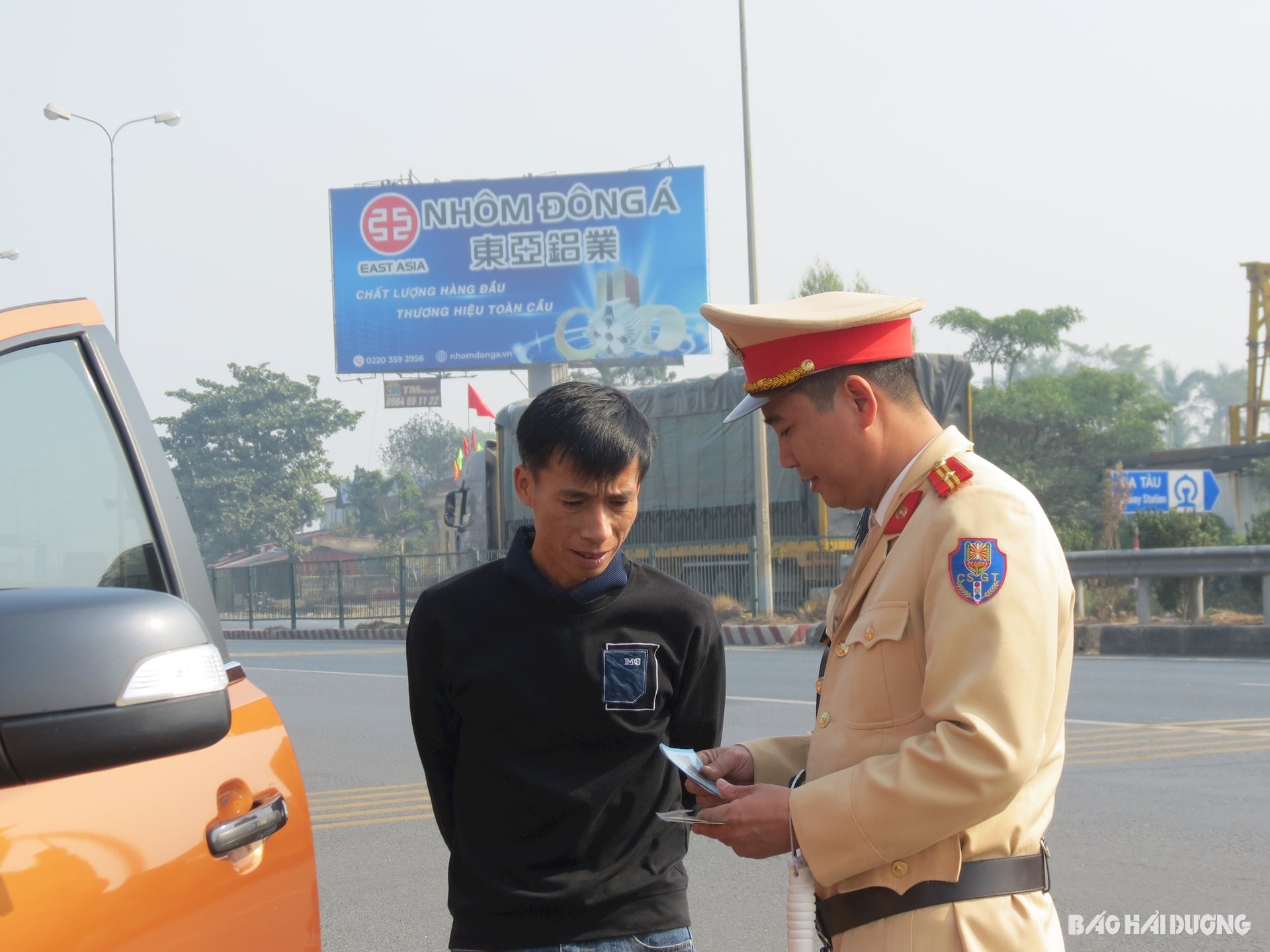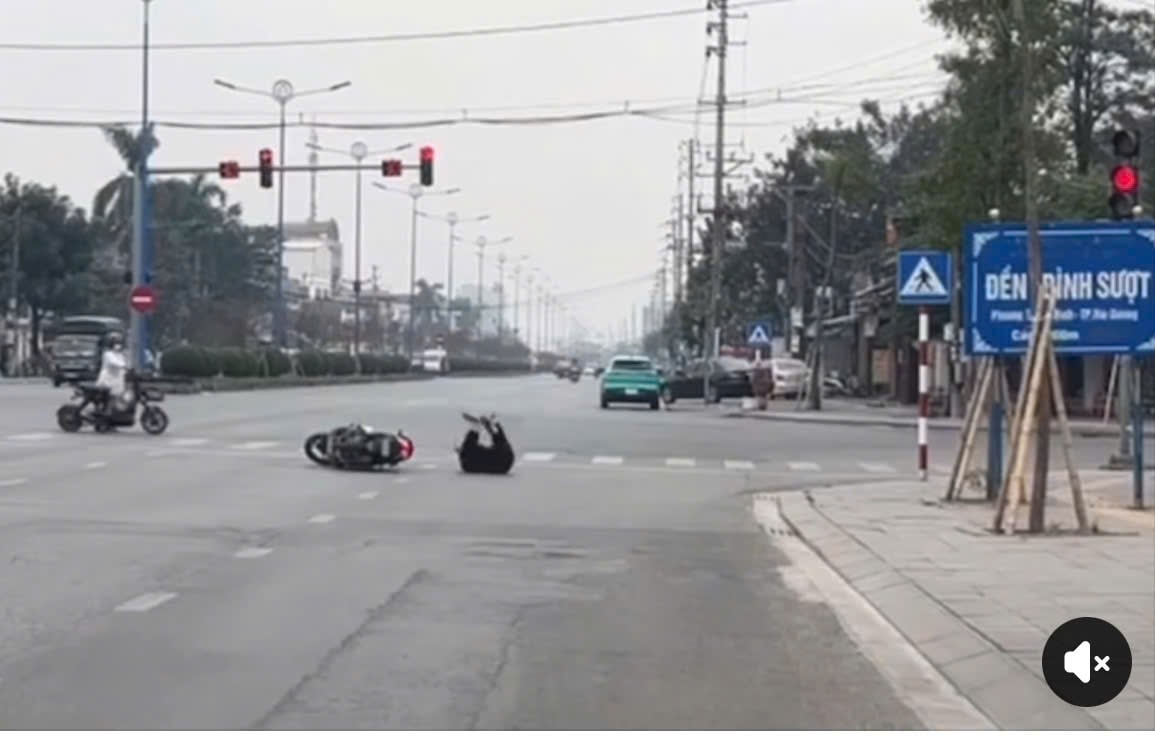Half a month since Decree 168/2024/ND-CP came into effect, people's traffic culture has had clear changes.

In recent days, a clip of a young man riding a motorbike falling over at an intersection in Hai Duong City has attracted thousands of views and comments.
The clip recorded the scene where the young man, perhaps due to being absent-minded, did not realize that the traffic light was about to turn red. Only when he was startled did he realize and brake suddenly. The sudden braking caused the young man to fall. The online community commented that it was a "million-dollar fall", because although it was a bit painful, it helped the young man avoid a fine of up to 6 million VND for running a red light.
This situation shows that Decree 168 is creating a change in many people's awareness, clearly affecting their traffic participation awareness.
If before, the young man would have clicked his tongue and run the red light, now he chose to obey the law.
In the past, we could easily see traffic participants deliberately running red lights, crossing stop lines, going the wrong way, speeding, reckless overtaking... causing traffic chaos and long traffic jams, but now it has improved. Vehicles stop and wait for red lights more seriously even when there are no traffic police. Vehicles participating in traffic are also more orderly, there are less mirrorsless motorbikes on the road; speeding and reckless overtaking have also decreased...
Increasing the level of fines is the method that Decree 168 is applying. A series of traffic violations are subject to administrative fines that are many times higher, even dozens of times higher than before, especially for intentional violations that are the direct cause of accidents.

Specifically, for drivers who violate traffic light signals, the fine is 18 - 20 million VND, 4 times higher than the old regulation. Acts of turning around on the highway, driving in the opposite direction or reversing on the highway, riding a motorbike on the highway... have fines 2 - 3 times higher. Transporting goods on a vehicle that is not securely tied; obstructing or not complying with the inspection and control requests of law enforcement officers; not following the instructions of traffic controllers... have fines 3 - 30 times higher than before.
The "telling" figures just announced by the Traffic Police Department, Ministry of Public Security after half a month of implementing Decree 168 most clearly reflect the effectiveness of the decree. Specifically, in half a month, there were 681 traffic accidents nationwide, killing 365 people and injuring 453 people, compared to the same period last year, a decrease of 355 cases (34.27%), a decrease of 47 deaths (11.41%), a decrease of 426 injuries (34.24%); compared to the previous period (second half of December 2024), a decrease of 347 cases (34.53%), a decrease of 94 deaths (20.47%), a decrease of 301 injuries (39.92%).
In Hai Duong, as of the morning of January 15, the whole province had more than 4,100 cases of traffic safety violations, fined 14 billion VND, and revoked 203 driving licenses. Of these, 660 cases were alcohol violations, 1,262 cases were speeding, 54 cases were overloading, 78 cases were running red lights, and 56 cases were driving in the wrong direction. However, compared to the time before Decree 168 officially took effect, the number of violations detected and handled in the province has decreased from 40 to 60 cases per day.
This is the most concrete evidence of the initial effectiveness that Decree 168 brings.
Traffic in Vietnam has long been a headache for experts. For more than ten years, we have had to face comments from international tourists that participating in traffic in Vietnam is their obsession. They are afraid every time they walk on the street, bewildered when they are not given way, and then surprised by traffic participants who do not wear helmets, speed, overtake recklessly, weave, and swerve... Therefore, now the initial changes when Decree 168 comes into effect are creating new hopes for civilized traffic in Vietnam, removing long-standing obsessions.
Although there are still conflicting opinions here and there, some provisions in Decree 168 need further discussion, it is clear that it has created a strong change in the awareness of traffic participants. Especially in the last days of this year, when the number of vehicles participating in traffic is higher than usual, it is easier to see that strict compliance is the initial remarkable success of the new regulation.
MINH THAI